No one could have predicted, back in the early ninteies, that the young skinny Saudi youth, Abdul Aziz bin Isa bin Abdullah Muhsin Al Muqrin would become an al Qaeda sympathizer and mastermind of the Khubar and al Mahya bombings in 2003. Classmates at the Al Imam al Bayhaki intermediate school in the conservative district of al Suwaidi, West of the capital, Riyadh, remember how al Muqrin joined the al Tawiya al Islamia (Islamic awareness) religious group and isolated himself from student activities, except for his favorite pastime, football, as he was the goalkeeper for the school football team. One pupil, a few years older than al Muqrin, remembers them joking in school, adding "the thin sideburns growing on his face were a sign of an early religious devotion". Al Muqrin's lighthearted personality soon disappeared, replaced by religious fervor and an affiliation with fundamentalist groups; he was still a teenager at the time.
Al Muqrin left school at an early age, despite some inconsistent reports to the contrary. He traveled to Afghanistan, for the first time, in 1991, aged 17. His classmate, however, is adamant that, they were in school together for three years, starting in 1992. He doesn't believe al Muqrin visited Afghanistan during that time. "He was too young. I don't remember him talking or showing excitement about jihad (holy struggle)." Could Abdul Aziz al Muqrin have kept this matter secret from his fellow pupils?
A fellow militant, known by his initials, MD, who is ten years older than al Muqrin, and a religious hardliner in the past, though never involved in violence, remembers him as "a marginal figure. I was never too interested in al Muqrin. I felt uneasy about him because he was reckless. I never imagined he would become the leader of al Qaeda inside the Kingdom." He continues, "He was a young man who couldn't recite the Quran without making mistakes. I never saw him interested in reading or learning."
According to an expert on al Qaeda and security matters in Saudi Arabia, al Muqrin, "was never a man of leadership. He was merely a facade for the group." In effect, he added, "The person who ran and masterminded the militant networks in the Kingdom was the Yemeni Khalid al Hajj. He was killed on 16th March 2004 in the al Naseem neighborhood, East of Riyadh. He had all the contacts with the overseas al Qaeda leadership."
In the expert's opinion, "perhaps the only person who could rival al Hajj was the Saudi national Yousif al-Ayeeri, before he was killed trying to flee from a security patrol near the Northern city of Hail, on 1st June, 2003.
Here are a few highlights in al Muqrin's life as an Islamic militant:
On visits to Afghanistan, between 1991 and 1994, al Muqrin was trained to use a variety of weapons. He then became an instructor at military camps for Arab fighters such as the Al Faruk and Wal Camps. It is believed that, during his sojourn in Afghanistan, al Muqrin made the acquaintance of many Arab fighters and militant leaders. He had a reputation for being hard on his trainees, to the degree that other militants nicknamed him "al Mukrif" (Mr. Nasty) instead.
Soon after his return to the Kingdom, al Muqrin traveled to Algeria and smuggled arms on behalf of militant groups with the border with Morocco. He was arrested by the Algerian police but managed to escape. Some say he received help from fundamentalist groups. He returned to Saudi Arabia.
Al Muqrin continued his world tour and visited Bosnia to train a group of fighters in Arab camps. It is unknown whether he joined the camp of Algeria militant Abu al Maali or the non- official, more violent camp of al Zubair al Haili. According to some sources, eight Arab men he trained later died in combat.
After returning to Saudi Arabia and leaving for Yemen, al Muqrin joined the fighters of the Somali Islamic Union, based in Ethiopia, who were calling for the independence of the Ogadin region. He was captured by the Ethiopian army after a chase he never tired from recounting.
News of his arrest then reached the Saudi government who asked he be handed over. After spending two years in prison in Ethiopia, al Muqrin was transferred to the general prison, al Hayir where he served two years of a four year sentence. He was released early because of his exemplary conduct and studies of the Quran. I remember meeting al Muqrin soon after his release. He turned away and refused to greet me, for he thought I was an infidel.
After staying in Saudi Arabia for some time, al Muqrin left for Yemen and then, once more, to Afghanistan . His arrival coincided with an influx on Saudi and non-Saudi groups to the country, as the US was about to begin fighting in Afghanistan. Many of those fighters were killed or captured, with some flown to US Camp Delta, in Guantanamo Bay .
He then decided to return home to join al Qaeda, and play a leading role in its activities in the Kingdom. His name featured on the list of 19 most wanted militants published in May 2003 and the list of 26 most wanted announced in December of the same year.
Terrorist activity erupted in Saudi Arabia on 18 th March 2003, in an apartment in Al Jazira, in Riyadh, when bomb- making material exploded prematurely, killing Fahd Samran al Saidi, aged 29.
Weeks later, Saudi police raided an apartment in the Ishbiliya neighborhood and found forged identity cards and passports, in addition to weapons and explosives, with a weight exceeding 700 kg. In May 2003, some of the names on the most wanted list carried out suicide operations against residential compounds in Al Hamra and Granada residential compounds.
After the escalation of violence, al Muqrin was to be propelled into the limelight, if only for a brief time. He had started to make himself noticed, under the protection of al Ayeeri and al Hajj, who was also known as Aby Hazim al Shair. Among the operations al Muqrin participated in were the bombings of al Muhayya residential complex in the capital in November 2003, and al Waha in Khubar, in May 2004.
He was proud of his group's activities, which included killing foreign hostages. He justified targeting the oil industry by citing orders from Osama bin Laden who had mentioned, in one of his speeches, the US company, Haliburton, who had contracts in Iraq.
Perhaps the most violent and peculiar confrontation with Saudi security forces occurred by a building in the al Suwaidi neighborhood where al Muqrin was born and raised. Clashes broke up one morning in November 2004 between elements of al Qaeda and the Kingdom's police. One operative, Amer Al Shahri was badly injured and later died. He was buried in the desert near Riyadh . Ironically, the building where the exchange of fire took place was erected on the rubble of the al Imam al Bayhaqi intermediate school where a young al Muqrin was busy trying to keep the ball out of his net, playing for his school football team and starting.
Al Muqrin changed strategies, after the death of his protector al Hajj, and kidnapped the US Engineer Bob Marshall Johnson. His beheaded corpse was shown on an al Qaeda website on 16th June 2003 . Two day afterwards, al Muqrin and his assistant, Faisal al-Dakhil, and Ibrahim al-Duraiham, and Turki al-Mutairi, were killed during a raid on 18th June 2003 . It was al Muqrin who appeared, veiled in black, giving the Saudi authorities a 72 hour deadline to release militant detainees and expel foreigners from the Kingdom.
After contesting al Muqrin's death, al Qaeda later admitted its leader in Saudi Arabia had, indeed been killed. In a message broadcast on the internet, it added that the loss would not deter the organization from continuing its jihad in Saudi Arabia.
Al Muqrin's story raises an important question. How did a young man from the Eastern al Ahsa region, whose family migrated to Riyadh , like many others, become an extremist militant Islamic fighter?
The answer requires us t take a step back in time to al Muqrin's first involvement with militant activity inside the Kingdom, when in November 1995, a group he was related to blew up the training grounds of the Saudi National Guards, in the upscale Al Alia neighborhood in Riyadh . The architects of the attack, Khalid al-Saeed, Riyadh al-Hajiri, Abd al Aziz al Muthim, confessed live on national television and were sentenced to death. Al Muqrin was closest to al Muthim, whose name was used to refer to the group.
Sources close to Saudi militant groups reveal that al Muthim's group was radicalized after meeting a Jordanian of Palestinian origin, Sheikh Abu Mohammed al Maqdisi, the theorist on Salafi jihad (struggle following the methods of early Muslims) and teacher of Abu Musab al Zarqawi. For his part, al Muthim visited the Sheikh in Jordan on many occasions in 1995. In turn, al Maqdisi paid several visits to Saudi Arabia where he met with a number of young supporters.
In 1989, I saw al Maqdisi in Mecca , at the end of the month of Ramadan, with a group of religious Saudis. It was the first and last time we would meet. At the time, the Sheikh wasn't, yet, speaking of the duty of jihad or military action against the authorities. He did, however, talk, fervently, about bad governance and the infidelity of Arab regimes, since they didn't follow the rules of God and were biased towards the West. Openly, at least, the Sheikh didn't mention armed struggle.
He retuned to the Kingdom in the mid 1990s and stayed for some time, giving lessons and providing excuses for denouncing government and fighting it. It appears that his discourse was divided into two: a theoretical attack on Arab regimes, in public, and a more militarized talk of fighting those in power, in private. This is probably where al Muthim and his group found the inspiration to attack the National Guards base.
The expert M.D who was in contact with these militant groups thinks the main reasons they "became indoctrinated with the belief in armed confrontation is Khaled al Said, the eldest member, ho had visited Afghanistan, met with Algerian and Egyptian militants and agreed with their beliefs in exporting jihad outside on Central Asia."
Our review of the activities of al Muthim and the role of al Maqdisi in providing the group with religious reasons to move from opposing the regime to fighting it, aims at understanding how al Muqrin chose the path of violence. A keen supporter of al Muthim, he encouraged the group to adopt more militant ideologies, to the degree where it opposed all recognized Sheikhs in Saudi Arabia because they didn't believe the teachings of al Maqdisi. When a dispute erupted between al Muthim's group and other militant fundamentalists, al Muqrin sided with the former.
These early days in al Muqrin's life were decisive and a warning of a bloody future. He is buried in the small cemetery Mansuriya cemetery in Riyadh. |
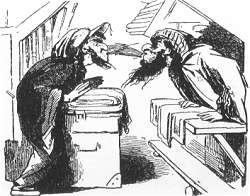
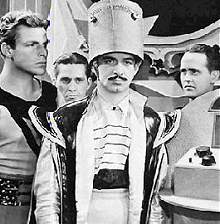 Hereditary President-for-Life Bashir
Hereditary President-for-Life Bashir 

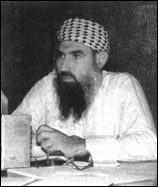 Al Qaeda began as a pan-Islamic movement of jihad first, in embryo, against the Soviet Union and then against the United States and the West. Before its establishment in 1989, Osama bin Laden was fighting against the Soviet Union in the tutelage of
Al Qaeda began as a pan-Islamic movement of jihad first, in embryo, against the Soviet Union and then against the United States and the West. Before its establishment in 1989, Osama bin Laden was fighting against the Soviet Union in the tutelage of 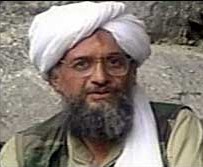 He was followed by the Egyptian
He was followed by the Egyptian  But then the youth from Jordan,
But then the youth from Jordan, 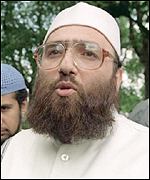 The founding of a new militant Islamist group will be announced at a press conference in Walthamstow, East London on Friday.
The founding of a new militant Islamist group will be announced at a press conference in Walthamstow, East London on Friday.